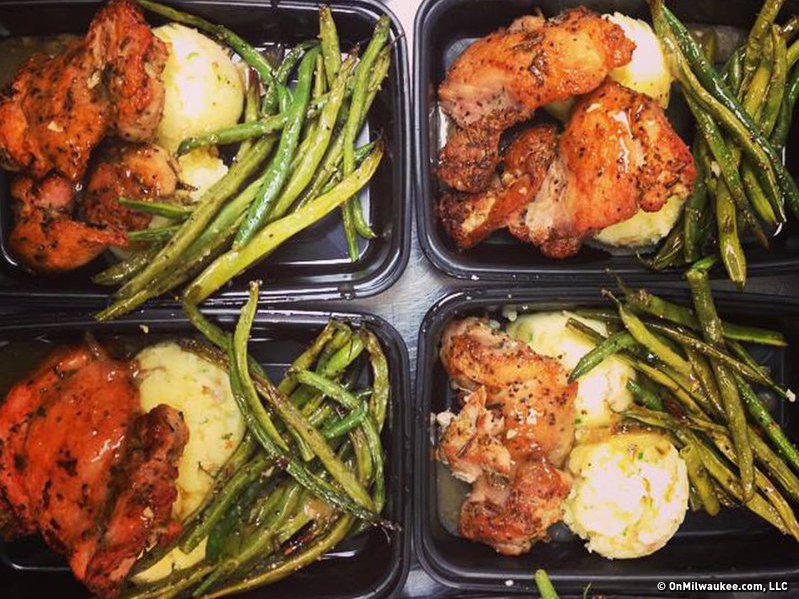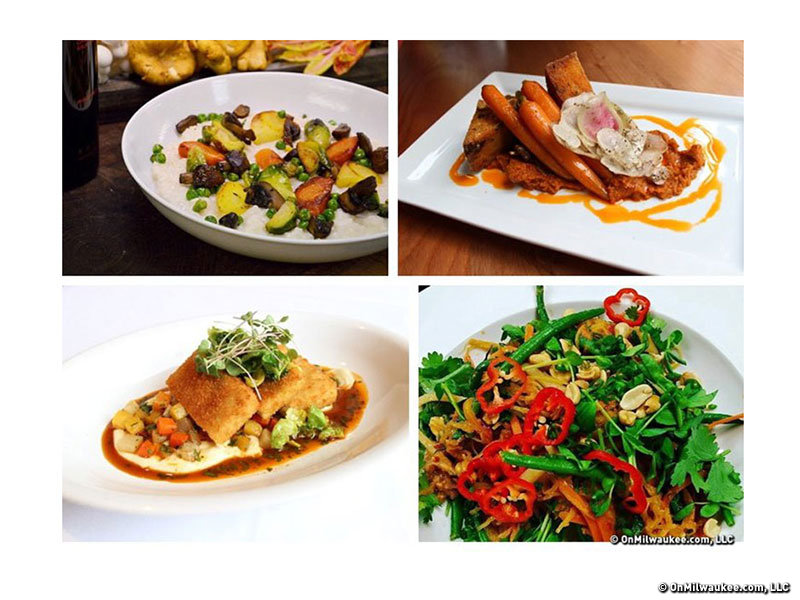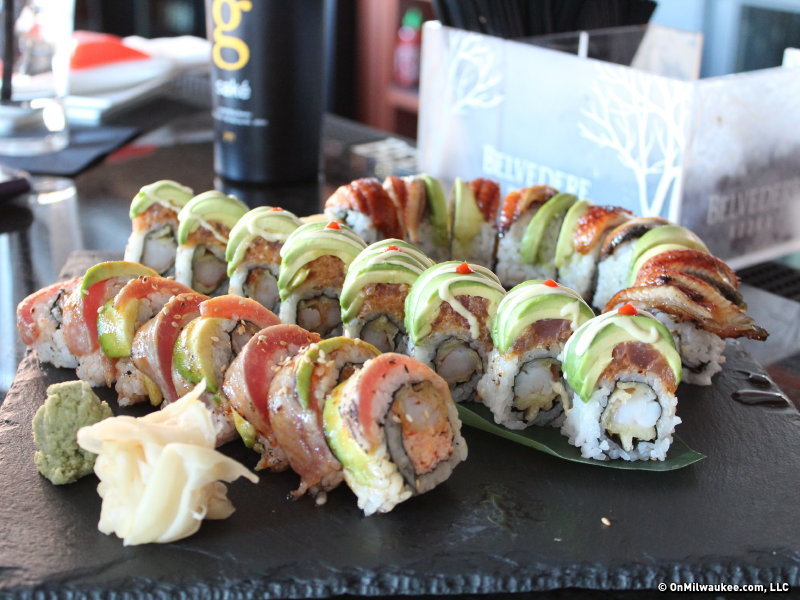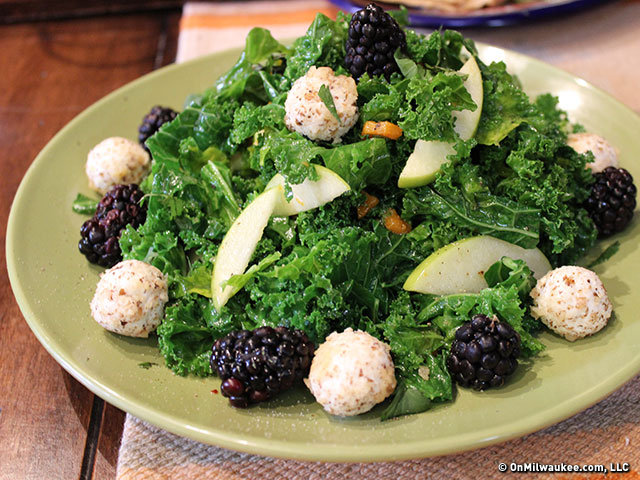New Year's celebrations are behind us, leaving only the resolutions to eat better and get fit. Don't worry, we're here to help. This week – Healthy Living Week, brought to you by The Milwaukee Y – we will focus on articles and information about exercise, eating right and staying healthy in a variety of ways.
Although the Paleo Diet is based on consuming foods believed to have been eaten by early humans, for many it’s more of a lifestyle than simply "eating like a caveman."
"I think many people have a major misconception that eating Paleo means you are shoveling piles of meat in your mouth all day," says Susan Spaight, who started the diet six months ago. "In reality, for many of us, it just means we eat a very natural, unprocessed diet."
The Paleolithic Diet – shortened to Paleo Diet – emphasizes the consumption of high protein or fiber foods including meat, seafood, vegetables, berries and some fruits. The diet also advocates a higher intake of fats, but not trans fats. It excludes, or reduces, the intake of dairy products, starchy fruits or vegetables and carbohydrates.
The diet requires people to plan out their meals and most people who are on it report they eat in restaurants less and cook at home more often. For many, the Paleo diet spans beyond food intake and requires rest, exercise and water.
Most people who choose this way of eating vary in how strictly they stick to the diet.
"Right now, I’d say I am mostly Paleo," says Jen Ede, who is the publisher and editor in chief of Edible Milwaukee magazine.
Ede started the diet five years ago after struggling with her weight for years and because it seemed like a path she could follow for life – not just for a period of time.
"Anyone who enjoys food and drink has to find a happy medium," says Ede. "For me, a good balance to the beer, bourbon and restaurant fare I love includes portion control, an emphasis on veggies, plus protein and fat, and very little sugar."
Ede says she also includes increased movement, heavy lifting or exercise in her daily routine. Getting plenty of sleep is also a priority. As a result, Ede has lost and managed her weight as well as had more energy.
"That's pretty much what Paleo is all about. I can get on board with that and it works within the context of my life," says Ede.
Spaight started the Paleo Diet for a different reason: because she was in pain and conventional medicine was not helping her condition. Spaight, who is a triathalete, started having terrible joint pain last fall and she went to numerous doctors and holistic health practitioners and no one was able to make a diagnosis.
Finally, about six months ago, a chiropractor recommended the Paleo diet and Spaight has been on it ever since.
"The biggest result was that I got enormous relief from the joint pain that had been troubling me for almost a year," says Spaight. "I tell people that it’s like I’m living in a different body. Because I went Paleo, I am able to train and run again for the first time in over a year."
Andy Drobac is the owner of BrewCity Crossfit and a certified personal trainer. Every January, he and his staff host a 30-day Paleo Challenge at the gym. Drobac says he has done it every January for five years and has experienced fat loss, strength gain and a boost in his energy level.
"During the challenge I maintain a strict Paleo diet – no sugar, grains, dairy, legumes or alcohol – for 30 days. When the challenge ends, my diet continues to revolve mostly around lean meats, healthy fats and lots of vegetables, but I am less strict. I'll selectively add back healthy grains and some dairy and include a cheat meal / day on the weekend and for holidays and special events."
Part of the Paelo diet philosophy is centered on quality of life and supports occasionally "cheating" or indulging in non-Paleo foods.
"I love going out to eat and I love the foods Wisconsin is famous for," says Ede. "A big challenge for me is learning to say, OK, I'll have that beer. I'll eat that fish fry. But I know that then, I'll need to eat fewer carbs at other meals and get some movement in throughout the day so it all evens out in the end."
Criticisms of the Paleo diet have been as prominent as success stories. Some believe modern humans have no idea what our ancient ancestors ate and the Paleo concept is based on fad and speculation. Historically, hunter-gatherers survived on meat and fish, but at the time, such foods weren’t laden with hormones or growth-stimulating antibiotics.
Others do not believe omitting bread is healthy, because of the many grains and nutrients that are in it, or eating meat on a daily or near daily basis, especially if the animal was not grass fed.
The bottom line is that the Paleo diet – or any diet – is not for everyone. It’s up to individuals to experiment and figure out what works best for them.
"There is no one perfect solution to everyone's dietary needs. We all have to figure out what works for each of us and our lifestyles," says Ede. "That being said, more real food, more cooking, more knowing where your food comes from. More veggies and fewer processed items. That will make anyone healthier."
Molly Snyder started writing and publishing her work at the age 10, when her community newspaper printed her poem, "The Unicorn.” Since then, she's expanded beyond the subject of mythical creatures and written in many different mediums but, nearest and dearest to her heart, thousands of articles for OnMilwaukee.
Molly is a regular contributor to FOX6 News and numerous radio stations as well as the co-host of "Dandelions: A Podcast For Women.” She's received five Milwaukee Press Club Awards, served as the Pfister Narrator and is the Wisconsin State Fair’s Celebrity Cream Puff Eating Champion of 2019.






